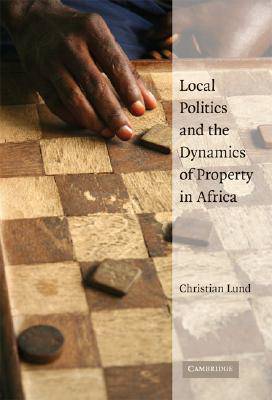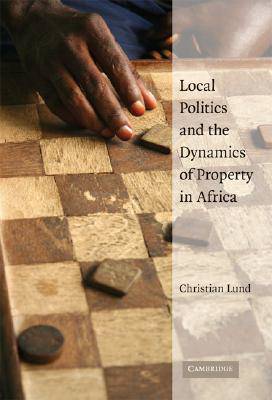
- Afhalen na 1 uur in een winkel met voorraad
- Gratis thuislevering in België vanaf € 30
- Ruim aanbod met 7 miljoen producten
- Afhalen na 1 uur in een winkel met voorraad
- Gratis thuislevering in België vanaf € 30
- Ruim aanbod met 7 miljoen producten
Zoeken
Omschrijving
Access to land and property is vital to people's livelihoods in rural, peri-urban, and urban areas in Africa. People exert tremendous energy and imagination to have land claims recognized as rights with a variety of political, administrative, and legal institutions. This book is dedicated to a detailed analysis of how public authority and the state are formed through debates and struggles over property in the Upper East Region of Ghana. While scarcity may indeed promote exclusivity, the evidence from this book shows that when there are many institutions competing for the right to authorize claims to land, the result of an effort to unify and clarify the law is to intensify competition among them and weaken their legitimacy. The book particularly explores how state divestiture of land in 1979 encouraged competition between customary authorities and how the institution of the earthpriest was revived. Such processes are key to understanding property and authority in Africa.
Specificaties
Betrokkenen
- Auteur(s):
- Uitgeverij:
Inhoud
- Aantal bladzijden:
- 224
- Taal:
- Engels
Eigenschappen
- Productcode (EAN):
- 9780521886543
- Verschijningsdatum:
- 24/03/2008
- Uitvoering:
- Hardcover
- Formaat:
- Genaaid
- Afmetingen:
- 155 mm x 229 mm
- Gewicht:
- 453 g

Alleen bij Standaard Boekhandel
+ 371 punten op je klantenkaart van Standaard Boekhandel
Beoordelingen
We publiceren alleen reviews die voldoen aan de voorwaarden voor reviews. Bekijk onze voorwaarden voor reviews.










